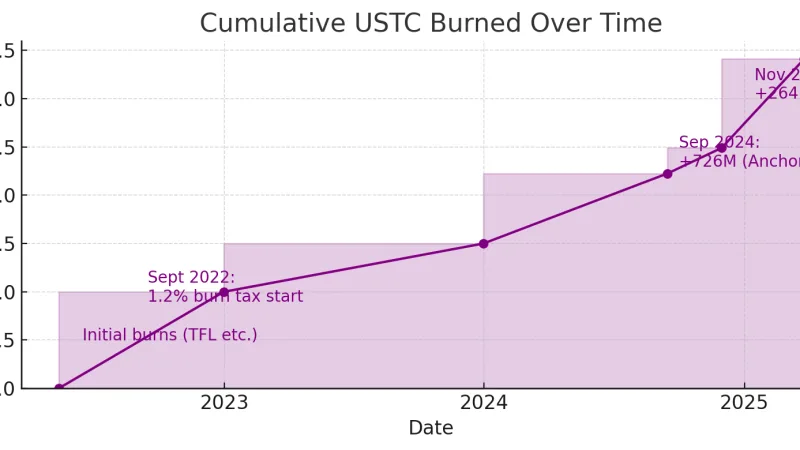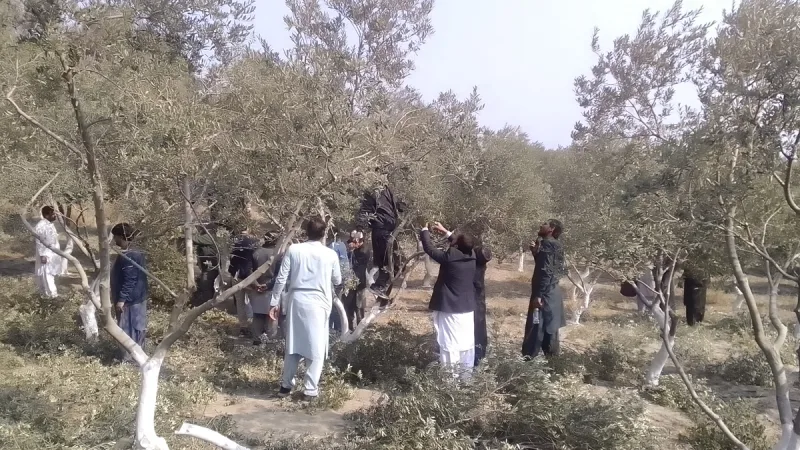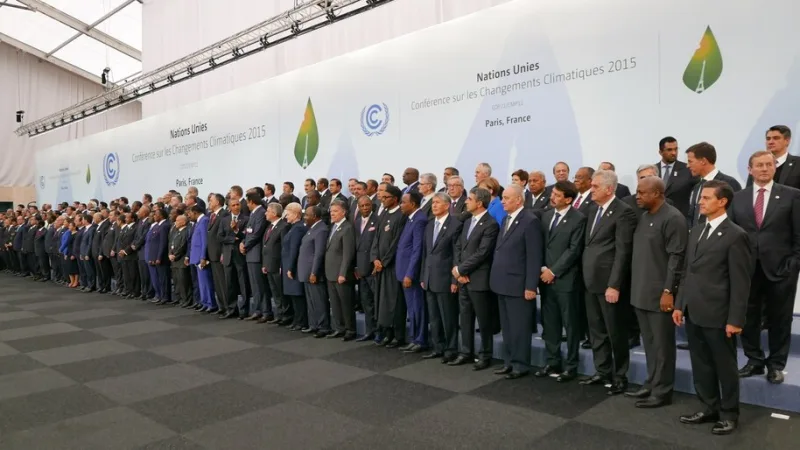National Olive Gala 2024: Celebrating Pakistan’s Olive Potential
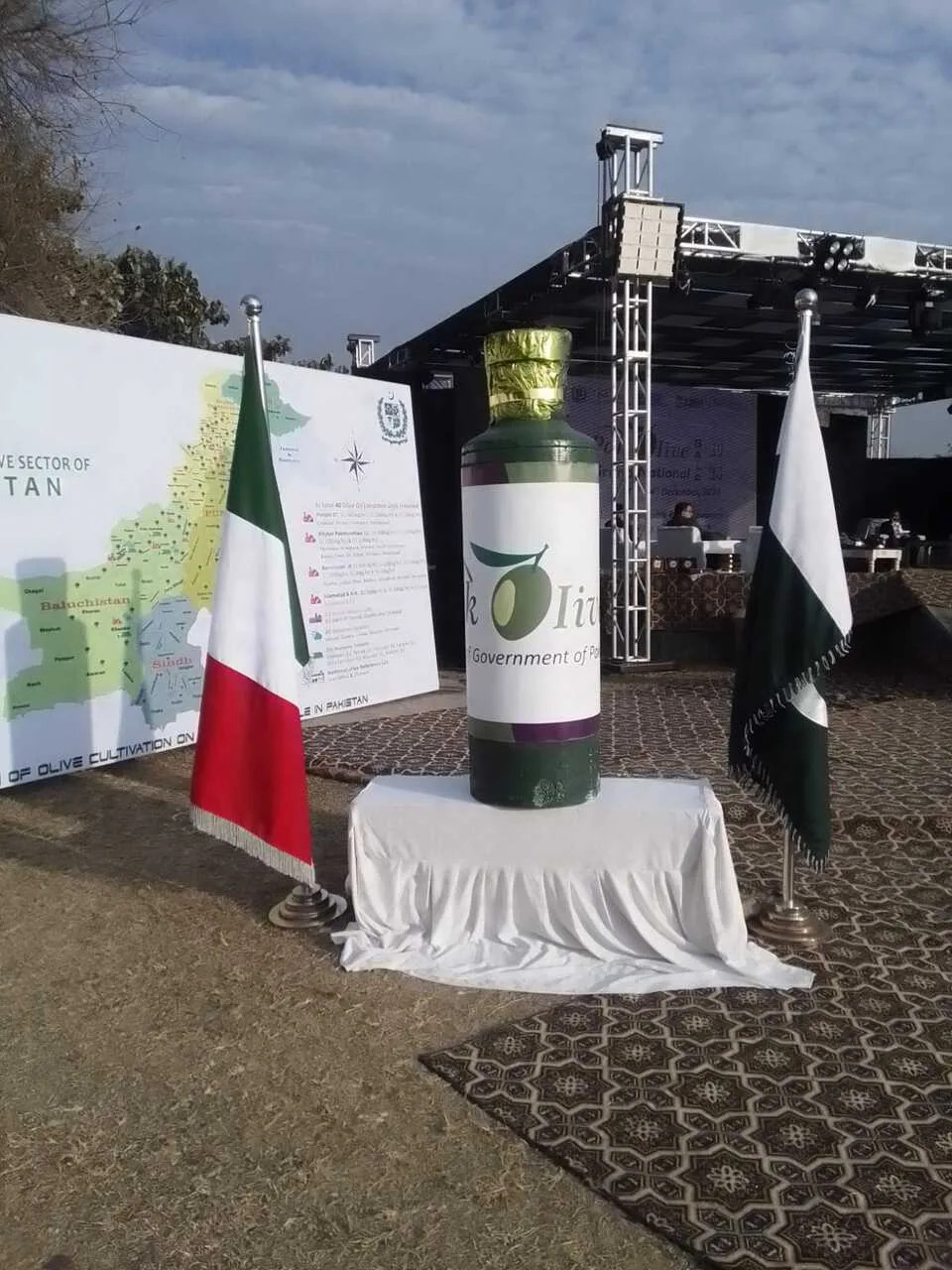
Pakistan may not yet be synonymous with olive oil, but the country is quietly experiencing an olive boom that could redefine its agricultural landscape. With an increasing number of small-scale farmers, entrepreneurs, and marketers venturing into olive production, the nation is taking significant strides toward reducing its reliance on imported edible oils.
For a country whose economy heavily leans on agriculture, the question arises: if Pakistan can achieve self-sufficiency in wheat, rice, fruits, and vegetables, why not edible oils? Experts argue that with the right investment, time, and dedication, Pakistan has the potential to become a key player in olive oil production—a prospect that could boost the local economy and reduce import bills.
A National Gala Celebrates Pakistan’s Olive Potential
On December 13-14, the annual Grand National Olive Gala—organized by Pak Olive, a government-led initiative to promote olive cultivation—brought together farmers, startups, and industry stakeholders from across the country. Held in Islamabad, the event showcased a vibrant array of olive-related products and innovations, providing a platform for small businesses to shine.
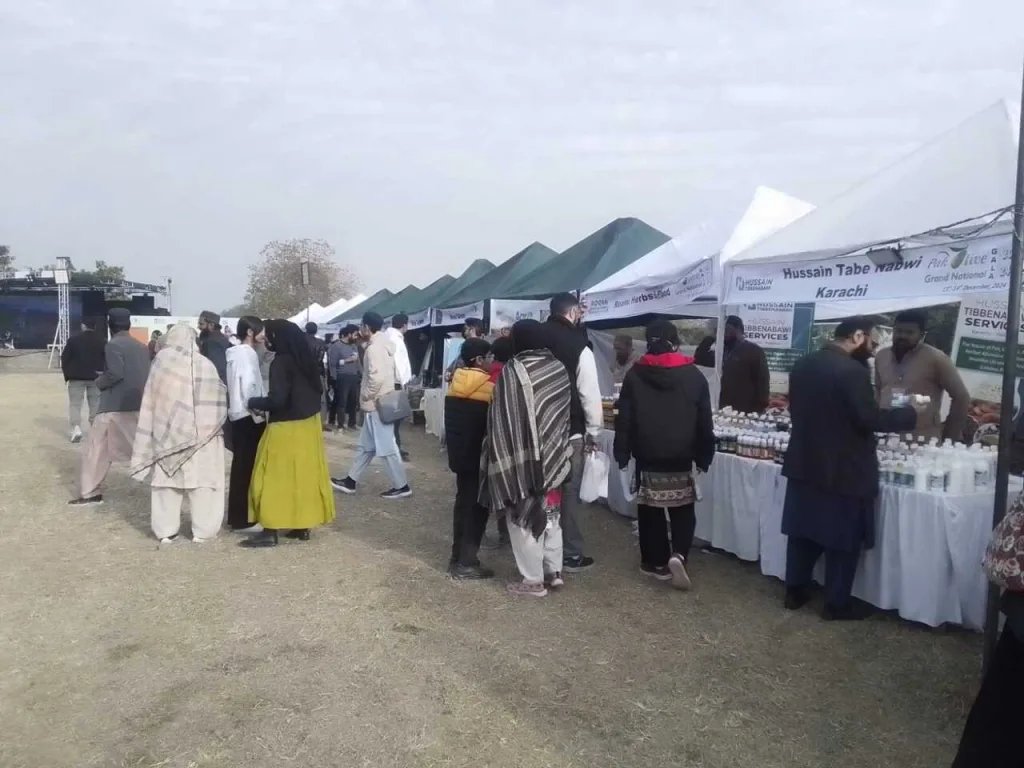
Hundreds of stalls were set up by agricultural research centers, established olive farms, emerging startups, and international NGOs. The gala attracted visitors from across Pakistan, particularly from the twin cities of Islamabad and Rawalpindi, highlighting a growing national interest in the olive industry.
Startups Shine at the Gala
One of the event’s highlights was the participation of dozens of startups, each eager to present their olive-derived products. From extra virgin olive oil to olive-based jams, pickles, and raw olives, these entrepreneurs demonstrated the untapped potential of Pakistan’s olive sector.
Many startups proudly claimed that their olive oil could compete with international brands. Among the standout participants were:
- Pak Olives – Recognized for its efforts in value addition to olive products.
- Loralai Olives – Awarded for excellence in product development.
- Jan’s Zaitoon – Praised for its innovative product design.
However, the high cost of locally produced olive oil—ranging from $12 to $15 per liter—was a talking point at the gala. Producers attributed the price disparity to elevated production costs and the lack of facilities to extract pomace oil, a lower-cost byproduct common in global markets.
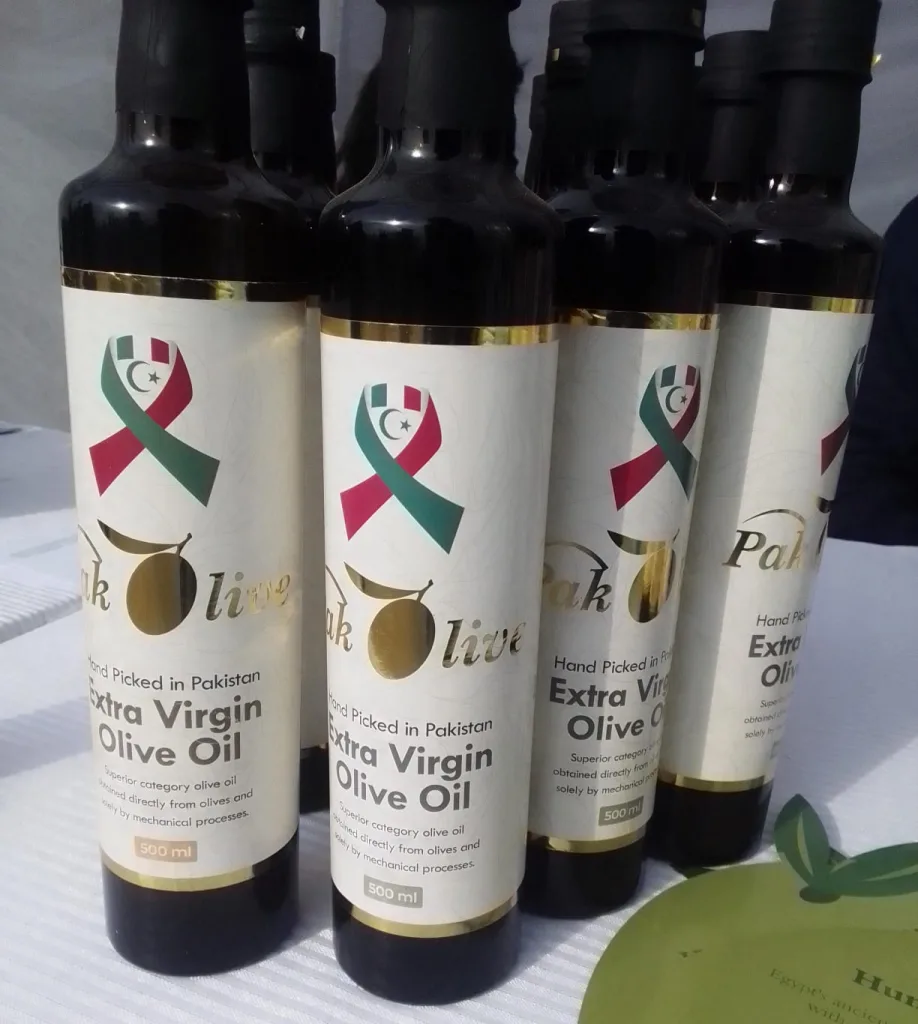
Research Institutes Join the Olive Movement
Prominent agricultural research institutes also played a vital role in the event, with stalls showcasing their contributions to olive farming and production. Notable participants included:
- Barani Agricultural Research Institute (BARI), Chakwal
- Agriculture Research Institute (ARI), Quetta
- Agricultural Research Institute, Tarnab Peshawar
- National Tea and High-Value Crops Research Institute (NTHRI), Shinkiari
- Agriculture Department of Azad Jammu and Kashmir (AJK)
Researchers and government officials actively engaged with visitors, offering insights into oil extraction, plant cultivation, and market opportunities. Their message was clear: the government is ready to support those interested in joining Pakistan’s burgeoning olive industry.
Related: Pakistan’s Olive Industry: A Story of Hope and Hurdles
Honoring Decades of Service
A special moment at the gala was the recognition of Dr. Marco Marchetti, the outgoing International Project Coordinator of the OliveCulture Project. Dr. Marchetti was awarded for his 40 years of service to Pakistan’s agricultural sector, particularly his contributions to the olive industry.
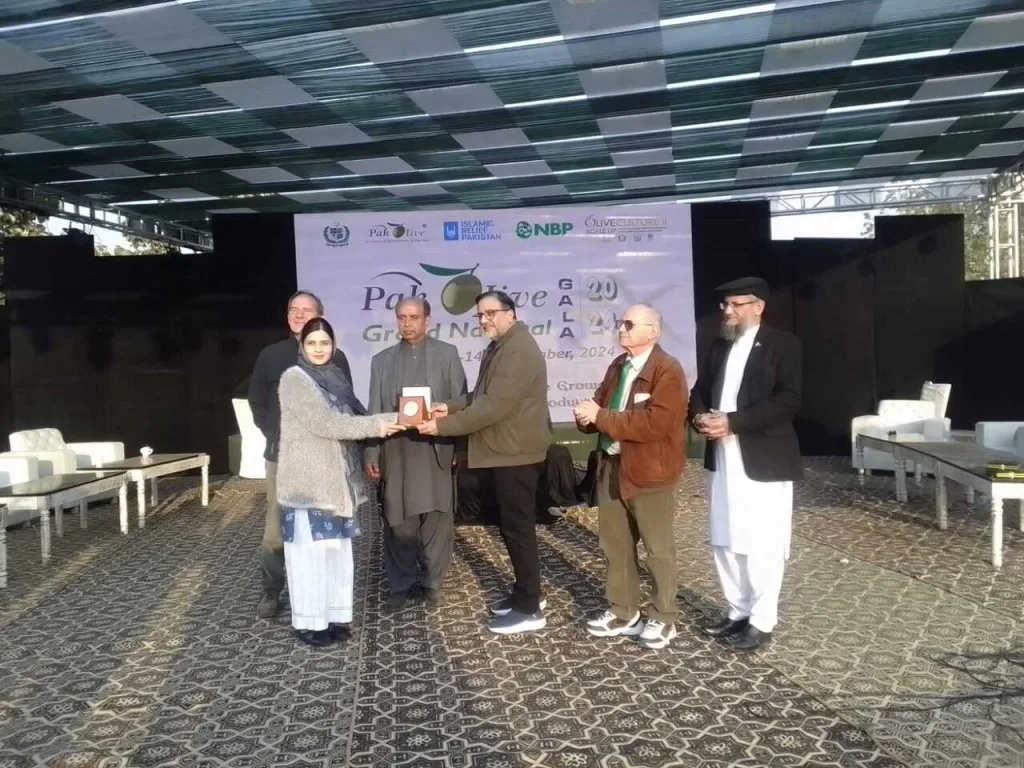
The OliveCulture Project, funded by the Italian government and implemented by CIHEAM Bari, has been instrumental in introducing modern olive farming techniques and fostering public-private partnerships within Pakistan’s olive sector.
With continued government support, international collaboration, and entrepreneurial enthusiasm, Pakistan could emerge as a significant player in the global olive oil market.The road ahead may be challenging, but the seeds of change have been planted. As Pakistan inches closer to self-sufficiency in edible oils, the olive boom represents a golden opportunity to transform the country’s agricultural and economic landscape.

